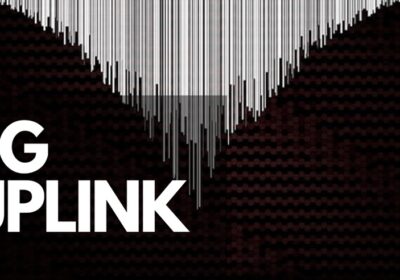
Mumbai’s Fintech Revolution: Analyzing Data to Empower Financial Inclusion
Mumbai, India’s financial capital, is on the cutting edge of an exciting revolution – the rise of fintech. Short for financial technology, fintech refers to innovative solutions that leverage technology to transform how financial services are delivered. Nowhere is this transformation more apparent than in Mumbai, where the promise of fintech to empower greater financial inclusion is becoming a reality through the strategic use of data analytics.
This guide will explore Mumbai’s vibrant fintech ecosystem and examine how data is pivotal in overcoming longstanding barriers to inclusion. We’ll analyse specific data applications like lending, insurance, and financial literacy programs. The goal is to provide an in-depth understanding of how Mumbai is pioneering a data-driven approach to expand access to vital financial products and services.
So, let’s begin our journey into Mumbai’s fintech revolution and discover how data analytics empowers greater financial inclusion across the city.
The Rise of Fintech in Mumbai
To understand fintech’s transformative impact, we must first examine what drove its exponential growth in Mumbai. Several key factors have contributed to the city’s emergence as a South Asian fintech powerhouse:
- High mobile and internet penetration created a fertile environment for digital financial services, with over 90% of Mumbaikars now owning smartphones.
- A large unbanked/underbanked population of over 50 million presented a vast market opportunity for innovative solutions outside traditional banking.
- Progressive government policies like Digital India promoted fintech through regulatory frameworks and initiatives supporting startups.
- Major corporations and global investors have poured billions into Mumbai-based fintech startups, attracting worldwide attention and talent.
These synergistic conditions made Mumbai home to over 500 fintech startups across insurance, lending, payments, blockchain, and other verticals. Famous examples include mobile wallets Paytm and Google Pay, lending platforms MoneyTap and KreditBee, and insurtech innovators like Acko and Turtlemint.
Meanwhile, traditional banks like ICICI and HDFC have launched their digital offerings. This diverse ecosystem symbolises fintech’s potential for empowering financial access on an unprecedented scale in Mumbai.
Challenges to Financial Inclusion in Mumbai
However, in a city of over 20 million people, significant barriers have long prevented many residents from participating in the formal financial system. Some key challenges include:
- Limited financial literacy, with over 60% of Mumbaikars needing help demonstrating basic financial skills or understanding concepts like interest rates.
- Lack of formal identification is often required to open bank accounts, disproportionately impacting lower-income, informal sector workers.
- High costs associated with basic bank accounts and services have long put them out of reach for millions living below the poverty line.
- Infrastructure gaps, as only 60% of households own smartphones, with internet connectivity inconsistent across the city.
These obstacles stem from deep-rooted socioeconomic issues and effectively shut large demographics from accessing crucial financial tools. Conventional solutions still need to be overcome at scale. It was clear a new paradigm was needed.
Enter Data Analytics
This is where the strategic use of data analytics comes in. By collecting, analysing and acting on insights from customer data, fintechs can directly address Mumbai’s longstanding inclusion barriers. Here are some ways data is empowering greater financial access:
- Identifying Underserved Populations: Demographic and location-based analysis reveals which communities have low inclusion rates, allowing targeted outreach and customised offerings.
- Alternative Credit Scoring: Fintechs assess creditworthiness using alternate data sources like mobile usage, bill payments and peer-to-peer lending patterns beyond traditional credit histories. This expands access to loans and services.
- Developing Tailored Products: Deep analysis of customer profiles and preferences drives product design best meeting specific needs – for example, simplified KYC for informal workers or low-cost savings plans.
- Improving Financial Literacy: Engagement data shows information gaps, enabling focused financial education campaigns through preferred mediums like vernacular mobile apps.
- Mitigating Risk Through Data: Advanced analytics detect anomalies indicating fraud or default risk, building more robust risk management while maintaining accessibility.
By leveraging these data-driven strategies, fintechs confront previously insurmountable obstacles – transforming how inclusion can be realised at scale in Mumbai.
Data in Action: Key Applications
To better understand data analytics’ on-the-ground impact, examining some prominent Mumbai-based fintech provides valuable insight into real-world solutions:
- Mobile Wallets: Paytm analyses over 1 billion transactions daily to offer targeted savings schemes and loan referrals based on customer spending patterns. This helps unbanked users develop convenient financial habits.
- Digital Lending: MoneyTap uses alternative credit scoring algorithms incorporating education, employment and device usage data to provide collateral-free loans to millions previously deemed uncreditworthy.
- Insurtech: With over 10 million policies issued, Turtlemint gathers intensive health/lifestyle data to offer hyper-personalized, paperless micro-insurance plans fitting all budgets through a simple app interface.
- Financial Education – Non-profit IDF partners with mobile wallet PhonPe to deliver localised financial literacy lessons on savings, investments and credit to underserved communities directly within the wallet app.
These innovative case studies illustrate how data-centric strategies have succeeded where traditional models fell short, revolutionising access across Mumbai. Fintechs collect diverse types of user data previously untapped to overcome barriers to inclusion systematically.
Building a Sustainable Data-Driven Ecosystem
To fully realise fintech’s promise, certain safeguards must be implemented to expand Mumbai’s growing data-powered financial system sustainably:
- Robust Data Protection: Strong privacy frameworks like data anonymisation assuages privacy concerns, encouraging widespread adoption, utilisation and sharing of customer information.
- Promoting Digital Literacy: Training supports understanding fintechs’ data usage while cultivating the benefits of participating in the digital economy through courses discussed below.
- Multi-Sector Partnerships: Collaboration between public, private and social sectors maximizes data’s potential through coordinated efforts – for example, linking welfare schemes to digital financial identities.
By adopting these governance best practices, Mumbai is creating an enabling environment where data-fueled innovation responsibly empowers greater financial access for all residents over the long run.
Learning Data Analytics Skills
As fintech matures in Mumbai and leverages advanced analytics, the demand for data science talent rapidly increases. Below are some top options for individuals to develop in-demand data analysis skills:
Data Analyst Courses in Mumbai
- 3-year B.Sc. Data Science programs at prestigious schools like IIT Bombay and SPJIMR
- 6-month Postgraduate Diplomas through the Indian Statistical Institute
- Intensive 12-week Bootcamps by Analytics Vidhya and other training institutes
- Self-paced MOOC programs through Coursera, edX and TutorialsPoint
Building a career in fields like:
- Data Collection and Management
- Credit Risk Modeling
- Customer Analytics
- Fraud Detection
- Financial Market Analysis
After completing data analyst course, individuals gain skills empowering meaningful participation in Mumbai’s innovative fintech economy. Course keywords to find the right program include data analyst course in Mumbai, business analytics course Mumbai, and data science course in Mumbai.
Conclusion
This guide has explored how Mumbai is at the forefront of India’s fintech revolution through extensive use of data analytics. Strategies like identifying unserved populations, alternative credit scoring, and tailored products now overcome historical barriers limiting financial inclusion.
Pioneering applications from leading startups demonstrate data’s transformative impact across lending, insurance and financial literacy. With supportive policies, responsible governance can sustain this progress and realise fintech’s immense potential of empowering all Mumbaikars.
As data remains central to the future of finance, ongoing investments in skills and literacy ensure everyone benefits. Mumbai is positioning itself as South Asia’s preeminent fintech hub by equipping its workforce and driving inclusive prosperity through innovation.
Business name: ExcelR- Data Science, Data Analytics, Business Analytics Course Training Mumbai
Address: 304, 3rd Floor, Pratibha Building. Three Petrol pump, Lal Bahadur Shastri Rd,
opposite Manas Tower, Pakhdi, Thane West, Thane, Maharashtra 400602
Phone: 9108238354, Email: enquiry@excelr.com


















